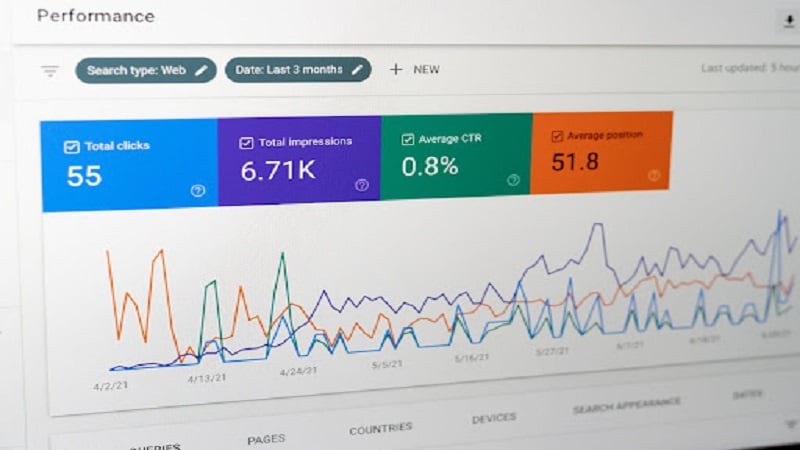
Google’s search algorithm is the secret sauce that has allowed Google to become the most dominant software company in history.
Lagging the release dates of early movers like MSN, Ask, and early market leader Yahoo, grew the largest index database in the entirety of the internet within two years of its public launch, and within four years it had snatched the market share lead from Yahoo, accelerating to the 90% or more market share it has enjoyed in the ensuing twenty years.
So what makes Google so good? Why do we instinctively reach for the “g” key as soon as we click in that search bar? And how do we master that algorithm to move our website up in PageRank?
Whether or not something is relevant to our queries feels so obvious to us, we assume it shouldn’t take much to get it right! But teaching a computer to think like a human is anything but simple, and it takes both sophisticated software and enormous volumes of information to make a task as daunting as bringing the vastness of the internet to your fingertips as fast and easy as Google makes it. It never hurts to enlist a real expert to learn more about link building in Melbourne, but if you want to get a grip on the basics, read on!
Keywords

The first, and perhaps most obvious ingredient in Google’s secret sauce is relevance, and the most important ingredient for determining relevance is keywords.
Google puts a lot of weight into finding the words you search for in a site, and if you want to master the algorithm, it’s important to use the right words – you have to understand your industry, but you also have to understand your customers and the language they use. When writing page content orad copy, don’t think about what you think of your product – put yourself in your customers’ shoes.
Google will use more than just the words the user searches for – they’ll also apply an overlapping network of terms related to and frequently appearing in searches alongside the words used in the query. Imagine Venn diagrams of words and their synonyms and words that people commonly use in the same search.
You want to keep these coincident terms and synonyms in mind when writing content for your website to make sure your site shows up in as many relevant searches as possible, but take care not to fall prey to keyword stuffing. It’s a fine balance to strike, and it’s not easy!
Quality
Next, you need to be sure your website is of exceptional overall quality. PageRank takes factors including bounce rate, slow loading times, attractive designs, relevant title tags and meta descriptions, and the all important CTR – Click Through Rate.
Building a good looking website is important. It’s easy to underestimate the value of a good web designer, but there really is an art to making an attractive, easily navigable website. A good designer will not only make you look good, they’ll also be familiar with a few of the little odds and ends that will make people click on your search result – creating a good title and meta description is absolutely vital.
That leaves us with CTR – Click Through Rate. Making sure that your ads, emails, and everything that links to your website encourages engagement is crucial – you should never forget that your ultimate goal is to entice users to dig deeper and explore your site. Making sure that your ads are placed well to encourage engagement and that they’re not showing up in places where they’re likely to be ignored is absolutely vital, since the core CTR metric is clicks over impressions – the number of times your ads or links are clicked, divided by the number of times they appear to others.
Since Google is not only the internet’s largest search platform, but also the largest vendor and distributor of digital advertising in the world, curating good ads and ensuring that they only appear to those who are interested in your content or product is vital to maintaining a high click-to-impression ratio.
Authority

And that means you need access to high quality links and content in your field. While graphic designers and marketing consultants can help you ensure that your website itself is up to scratch, ensuring that the links that point to your site are prevalent and useful, and that the content they appear in is of high quality, is precisely the business of SEO specialists.
Building credibility for your content, as well as the content that it’s featured alongside or linked from, is just as important as the quality of your content when it comes to PageRank.
If we pretend that the internet is a city, and that content creators are people and companies building their homes and offices, then Google is the city planning board building freeways and printing maps, and SEO specialists are the construction workers building smaller local roads between buildings.
The quicker the trip between your content and other websites that have reputable content, the better – if you can get a link from a big publisher or important company, there’s going to be a lot more traffic headed past your building. If they’re a big enough company, it’s like having a business in the middle of town – people are all but guaranteed to walk by your shop and have a look.
We hope we’ve helped you learn a bit and feel more comfortable beginning your journey to Search Engine Optimization! Do yourself (and us!) a favor by clicking some of those links and getting started making your site better, brighter, and higher up in PageRank!










